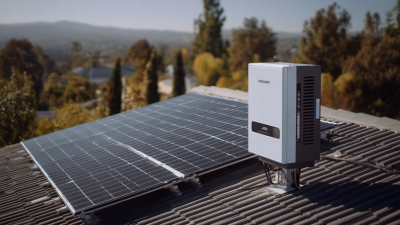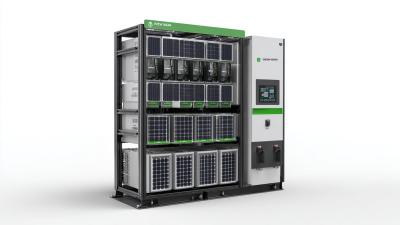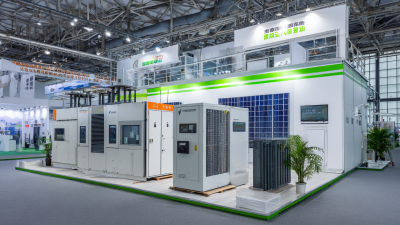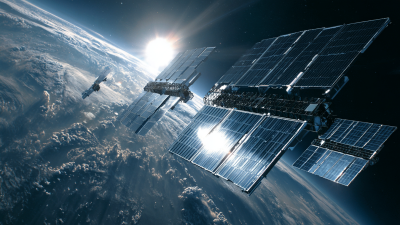ALL PRODUCTS
- Solar Panel
- Hybrid Inverter
- Lithium Battery
GSB SOLAR LITHIUM BATTERIES
- Gel Battery
- Solar Street Lights
- Pump Inverter
As the global energy landscape shifts towards sustainability, hybrid inverters emerge as a pivotal technology in the transition to a greener future. By integrating both solar and battery storage systems, hybrid inverters not only enhance energy efficiency but also facilitate energy independence for households and businesses alike. According to a report from the International Renewable Energy Agency (IRENA), the deployment of hybrid inverters can significantly contribute to reducing reliance on fossil fuels, with projections indicating a potential market growth of 20% annually through 2030. This technology enables optimized energy consumption, providing users with the ability to store excess energy and reduce grid dependency. Furthermore, the adoption of hybrid inverters aligns with the increasing global emphasis on energy resilience, as highlighted in the World Economic Forum’s Energy Transition Index, which underscores the critical role of innovative solutions in achieving sustainable living standards. Embracing hybrid inverters represents not just a step towards energy efficiency, but a critical stride towards a sustainable, self-sufficient energy future.
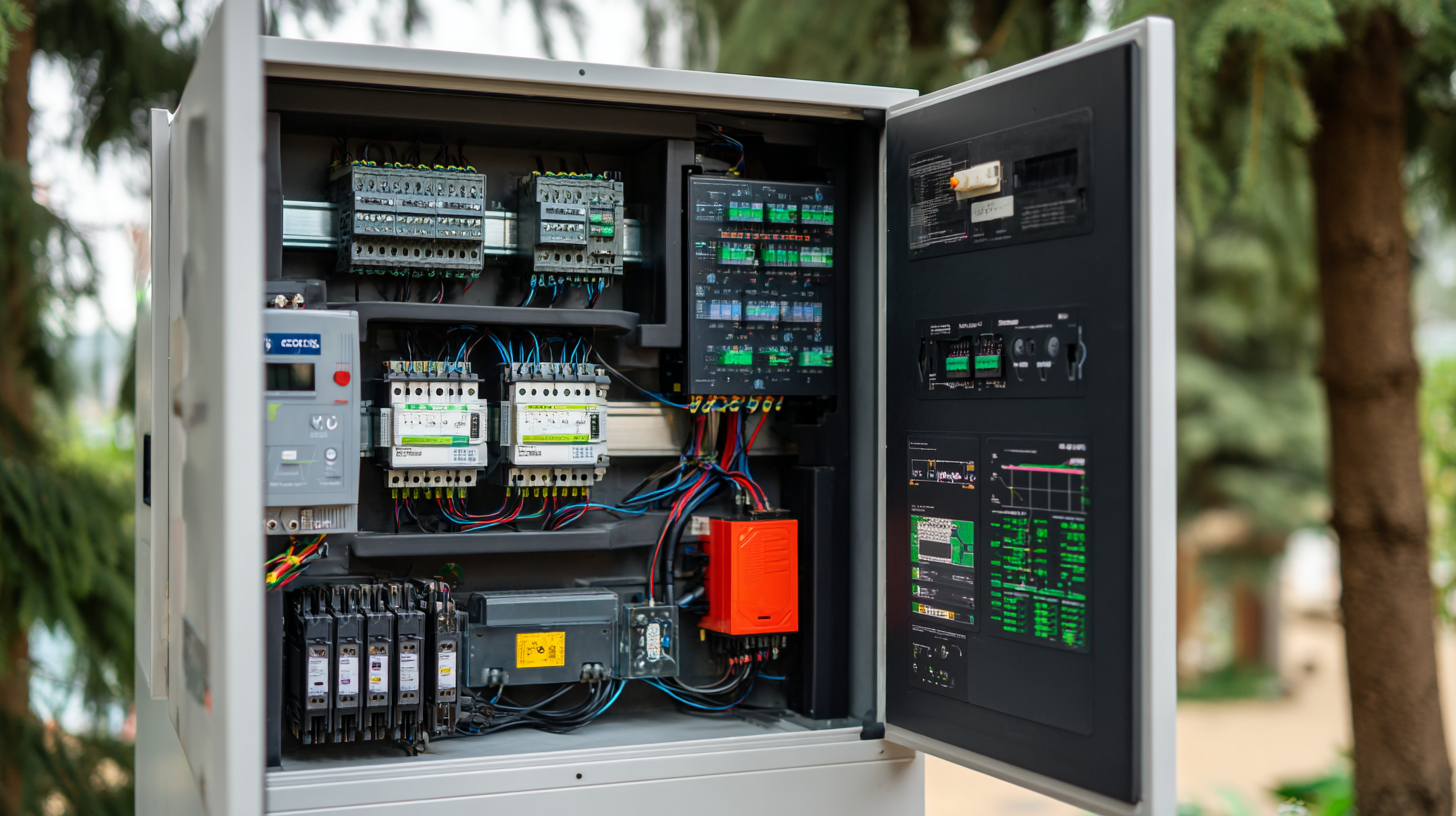
Hybrid inverters are revolutionizing the renewable energy landscape by combining multiple energy sources into one efficient system. According to a report by the International Renewable Energy Agency (IRENA), the global installed capacity of solar power has surged to over 850 GW, making it one of the fastest-growing energy sectors. Hybrid inverters facilitate this growth by allowing homeowners and businesses to integrate solar panels with battery storage and the utility grid. This synergy enhances energy management and reduces reliance on fossil fuels, which is critical for achieving sustainability goals.
One of the key advantages of hybrid inverters is their ability to optimize energy usage. By storing excess solar energy generated during sunny days, households can utilize this power during peak demands or outages, as highlighted in a study by the U.S. Department of Energy. Furthermore, hybrid systems contribute to significant cost savings—reports indicate that energy bills can be reduced by up to 70% when utilizing a hybrid inverter combined with solar energy and battery storage. These systems not only foster greater energy independence but also support the transition to a more sustainable energy future, aligning with global initiatives to reduce carbon emissions and combat climate change.
| Dimension | Description | Benefits |
|---|---|---|
| Energy Efficiency | Hybrid inverters optimize energy consumption by balancing grid power and renewable sources. | Lower energy bills and reduced carbon footprint. |
| Flexibility | Allows integration of multiple energy sources like solar and wind. | Enhanced adaptability to varying energy needs. |
| Energy Storage | Supports batteries for storing excess energy. | Increased energy independence and reliability. |
| Grid Support | Can function during power outages by supplying stored energy. | Improved resilience against grid failures. |
| Cost Savings | Reduction in peak demand charges and incentives for renewable integration. | Long-term financial benefits and improved ROI. |
| Sustainability | Encourages the use of renewable energy sources. | Contribution to environmental conservation and carbon reduction. |
 Hybrid inverters are increasingly recognized for their advantages over traditional power systems, particularly in the context of sustainable living. The solar hybrid inverter market is estimated to reach $8.58 billion in 2023, growing at a compound annual growth rate of 9.58% from 2024 to 2031. This growth is largely driven by the innovative technologies embedded in hybrid inverters, such as solar energy optimization and energy storage capabilities that enhance overall system efficiency.
Hybrid inverters are increasingly recognized for their advantages over traditional power systems, particularly in the context of sustainable living. The solar hybrid inverter market is estimated to reach $8.58 billion in 2023, growing at a compound annual growth rate of 9.58% from 2024 to 2031. This growth is largely driven by the innovative technologies embedded in hybrid inverters, such as solar energy optimization and energy storage capabilities that enhance overall system efficiency.
One significant example of innovation is the introduction of highly precise control in energy systems. Advanced inverter solutions are able to directly integrate energy conversion within a single or few photovoltaic modules, allowing for better performance and energy output. Such technologies not only reduce costs but also support the transition to greener energy sources by maximizing the effectiveness of solar arrays.
Tips: When considering a switch to hybrid inverters, evaluate your energy needs and local regulations regarding solar energy. Additionally, explore various options available in the market to find systems that best suit your specific requirements. It can also be beneficial to consult with energy professionals to ensure that you are making informed choices that will lead to optimal long-term savings.
Hybrid inverters play a crucial role in enhancing energy efficiency metrics, particularly in the context of sustainable living. Unlike traditional inverters, hybrid models integrate both solar and grid power, allowing for better energy management. This dual capability means they can draw from the grid when solar production is low, ensuring a consistent energy supply while also maximizing the use of renewable sources. By optimizing the energy flow, hybrid inverters reduce overall consumption and lower dependency on fossil fuels.
The impact of hybrid inverters on energy consumption is significant. They facilitate the use of stored solar energy, thereby minimizing wastage and increasing the overall efficiency of energy systems. As homes adopt energy storage solutions alongside these inverters, consumers see a reduction in their electricity bills and a smaller carbon footprint. Additionally, hybrid inverters often come equipped with smart features that allow users to monitor and manage their energy use more effectively, further encouraging a culture of sustainability. These innovative technologies are essential for transitioning towards a more energy-efficient future.
Investing in hybrid inverter technology offers significant financial benefits that align well with the growing demand for sustainable energy solutions. Hybrid inverters are designed to work seamlessly with various renewable energy sources, providing optimized energy management and enabling users to reduce their electricity bills substantially. With the integration of renewable energy into the electricity generation system, studies have shown that households can achieve energy savings of up to 50% annually, significantly enhancing their sustainable living efforts while decreasing reliance on grid power.
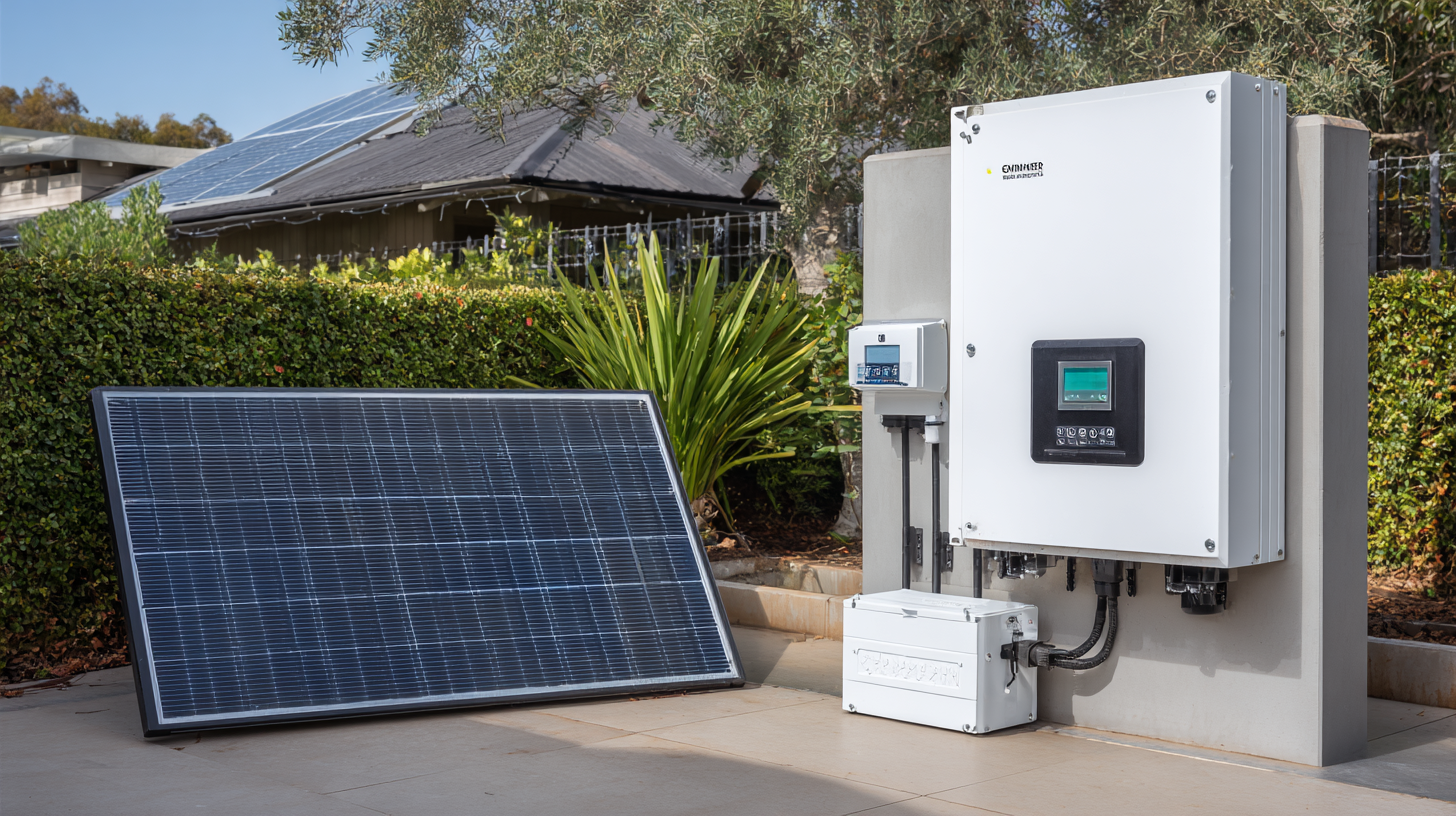
Moreover, the financial return on investment (ROI) for hybrid inverter systems can be impressive. Recent analyses highlight that homeowners who install solar panels combined with hybrid inverters can expect a payback period of around 5 to 7 years, depending on energy consumption patterns and regional incentives. For instance, the federal solar tax credit can reduce initial investment costs, making the transition to renewable energy even more appealing. As a result, many experts agree that hybrid inverters not only support environmental sustainability by lowering greenhouse gas emissions but also contribute to long-term financial savings, making them a wise financial decision in the pursuit of energy independence.
The transition to renewable energy sources is being significantly enhanced by the rise of hybrid inverters, which play a crucial role in increasing the efficiency of energy systems. As the global battery storage inverter market is projected to grow from $8.45 billion in 2025 to $15.32 billion by 2030, the adoption of hybrid inverters has become pivotal in aligning energy consumption with sustainable practices. These inverters not only integrate various energy sources but also optimize battery storage, providing flexibility and reliability in energy supply, which is essential as we shift towards renewable energy.
Future trends indicate that the PV inverter market, including hybrid solutions, is anticipated to surpass USD 90 billion by 2034. This remarkable growth is driven by the increasing installations of solar technologies and the growing demand for energy storage solutions.
Events like the recent Madrid conference that gathered key industry players highlight the collaborative efforts and innovations within the hybrid inverter sector, underscoring their critical role in meeting the evolving energy needs across Europe and beyond. As technology advances, tailored energy solutions from hybrid inverters are set to redefine sustainable living, making renewable energy more accessible and efficient.
